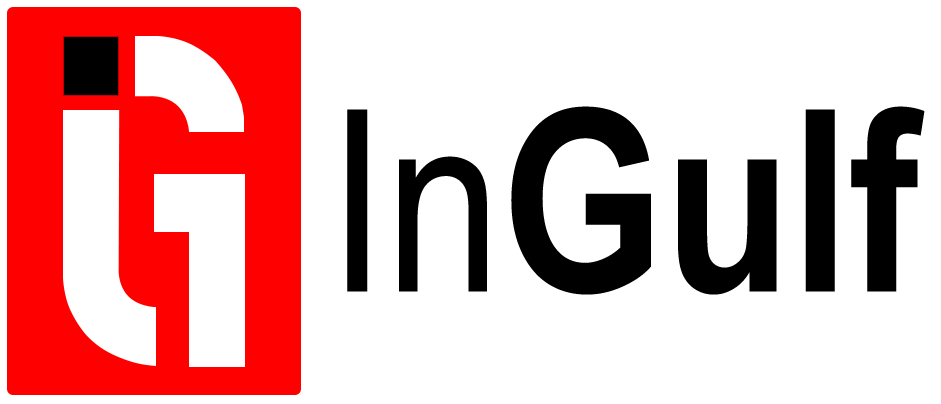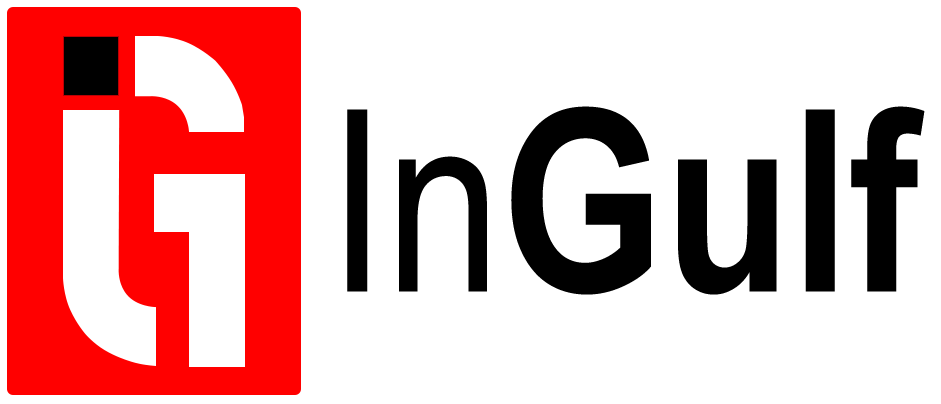Dubai presents a striking juxtaposition, where contemporary skyscrapers stand alongside traditional markets, and opulent lifestyles harmonize with more modest financial plans. Whether you are moving for employment opportunities or considering a long-term visit, it is essential to grasp the cost of living in Dubai. From rental prices in affluent neighborhoods to the daily expenses for necessities, understanding how far your finances will extend in this dynamic city is vital for fully experiencing all that Dubai has to offer.
Let us delve into the specifics…
Dubai provides a lifestyle that appeals to both those seeking luxury and those who are budget-minded. Gaining insight into the cost of living, whether you are single, part of a couple, or have a family, is crucial for successfully navigating life in this vibrant urban center. From housing and food to education and leisure activities, each expense category can greatly influence your financial planning. Below is a comprehensive overview of costs, offering you a clear perspective on what to anticipate.
Factors Influencing the Cost of Living in Dubai
1. Housing
The rental prices in Dubai fluctuate significantly based on the location. High-demand areas such as Downtown, Dubai Marina, and Palm Jumeirah are associated with elevated costs, whereas more budget-friendly options can be found in neighborhoods like Al Barsha or Dubai Silicon Oasis.
- For individuals: If you are living alone, the cost of renting a studio or one-bedroom apartment in a mid-range area such as Al Barsha, Jumeirah Village Circle, or Deira typically ranges from AED 4,000 to AED 7,000 per month. In contrast, prime locations like Downtown Dubai or Dubai Marina may charge between AED 8,000 and AED 15,000 monthly.
- For couples: A couple might opt for a one- or two-bedroom apartment. In mid-range neighborhoods, rental prices are generally between AED 5,000 and AED 10,000 per month, while more upscale areas can range from AED 10,000 to AED 18,000 monthly.
- For families: A family consisting of three or more members usually requires at least a two- to three-bedroom apartment or villa. Rental costs in more affordable areas can vary from AED 7,000 to AED 12,000, whereas premium locations such as Palm Jumeirah or Arabian Ranches may demand AED 20,000 to AED 30,000 or higher per month.
2. Utilities (Electricity, Water, Cooling)
The expenses associated with electricity, water, and cooling can represent a considerable monthly financial burden, particularly during the sweltering summer months. Utility costs in Dubai tend to exceed global averages, making it crucial to allocate a budget for these expenses.
- Single: For individuals, monthly utility expenses generally fall between AED 500 and AED 800, influenced by the size of the apartment and the season, with costs rising in summer due to increased cooling needs.
- Couples: For couples, the typical monthly utility expenditure ranges from AED 700 to AED 1,200.
- Family: Families residing in larger homes should anticipate utility costs between AED 1,200 and AED 2,500, with summer cooling demands being a major factor in these expenses.
3. Groceries
Grocery expenses can vary significantly, encompassing both budget-friendly local produce and pricier imported goods. While staple items such as bread and vegetables are generally affordable, the inclusion of international products and dining at restaurants can elevate your overall food expenditures.
- Single: For an individual, monthly grocery costs typically fall between AED 800 and AED 1,500, influenced by personal lifestyle choices and the preference for either imported or local products.
- Couples: Couples generally allocate around AED 1,500 to AED 2,500 for their monthly grocery shopping, particularly if they favor preparing meals at home rather than eating out frequently.
- Family: A family of four should anticipate grocery expenses ranging from AED 2,500 to AED 4,000 each month, with additional expenditures for snacks, children’s items, and bulk purchases.
4. Healthcare and Insurance
Dubai is renowned for its high-quality healthcare services; however, private healthcare can be expensive. Health insurance is a legal requirement, and the costs can vary significantly based on the chosen plan, with comprehensive options representing a substantial monthly financial commitment.
- For individuals: Basic health insurance for individuals typically costs between AED 600 and AED 1,500 annually. More extensive coverage or premium plans can reach up to AED 10,000 per year.
- For couples: Health insurance for couples generally ranges from AED 3,000 to AED 6,000 per year, depending on the level of coverage selected.
- For families: Family health insurance plans can vary from AED 5,000 to AED 20,000 annually, influenced by the number of family members and the specific type of plan chosen.
5. Educational Institutions (For Families)
The cost of education represents a significant financial burden for families residing in Dubai. International schools, renowned for their exceptional facilities, provide a diverse range of curricula; however, the associated tuition fees can be substantial. Furthermore, additional costs such as uniforms, extracurricular programs, and transportation contribute to the total expenditure.
For families, the fees associated with international schools can constitute one of the most considerable financial commitments. Annual tuition fees typically range from AED 20,000 to AED 100,000 per child. Beyond tuition, parents should also account for expenses related to uniforms, school supplies, and extracurricular activities, which can add an extra AED 5,000 to AED 10,000 each year.
6. Transportation
Public transportation in the area is both economical and dependable, featuring options such as the Dubai Metro and bus services. Nevertheless, a significant number of residents opt for personal vehicles, which entail expenses for fuel, insurance, and maintenance. Additionally, parking fees in specific locations may further elevate monthly transportation costs.
- For individuals: Utilizing public transport, including the metro and buses, is relatively inexpensive, with monthly passes beginning at AED 300. In contrast, car ownership incurs costs such as fuel (ranging from AED 300 to AED 600 monthly), insurance (between AED 2,500 and AED 4,000 annually), and potential parking charges in certain regions.
- For couples: Couples relying on public transport would typically incur expenses of approximately AED 600 per month. Conversely, if both partners possess vehicles, their combined monthly costs for fuel, insurance, and maintenance could total between AED 1,500 and AED 2,500.
- For families: Families may prefer a larger vehicle or two cars, which would significantly increase their fuel, insurance, and maintenance costs. Overall transportation expenses for a family could range from AED 2,000 to AED 4,000 per month.
7. Leisure
Dubai presents an extensive array of leisure options, encompassing beach clubs, premier shopping centers, and exceptional dining experiences. The cost of entertainment can vary significantly based on individual lifestyles, ranging from economical outings to lavish experiences. Additionally, expenses related to fitness memberships, cultural events, and nightlife contribute to the overall leisure budget.
- Single: For an individual, leisure expenditures, which may include gym memberships, dining experiences, and weekend activities, typically range from AED 1,000 to AED 2,000 monthly, influenced by personal lifestyle choices.
- Couples: Couples can expect their leisure costs to fall between AED 1,500 and AED 3,500 per month, as expenses for dining, gym memberships, and various entertainment options accumulate rapidly.
- Family: Families generally incur higher costs due to weekend outings, children’s activities, and dining expenses. For a family of four, leisure spending can vary from AED 2,500 to AED 5,000 per month, depending on their preferences.
Government Policies and Their Influence on the Cost of Living in Dubai
The dynamic economic environment of Dubai is profoundly shaped by various government policies that directly impact the cost of living. A thorough understanding of these policies equips both residents and newcomers with the tools to navigate their financial circumstances more effectively. Below is an overview of several recent government initiatives that influence the cost of living in Dubai:
1. Value Added Tax (VAT)
- Implementation and Rate: The UAE introduced VAT on January 1, 2018, at a rate of 5%. This tax applies to most goods and services, consequently elevating the overall cost of living by increasing the prices of everyday items and services.
- Recent Updates: As of now, there have been no significant changes to the VAT rate. However, it is essential to stay informed about any potential adjustments that may affect consumer prices.
2. Housing Regulations
- Rent Increase Limitations: The Dubai Rental Increase Law regulates the extent to which landlords can raise rents. It sets a cap on annual rent increases based on the rental index and current market conditions, providing a measure of stability for tenants.
- Rental Index: The rental index issued by the Dubai Land Department standardizes and regulates rental prices, ensuring transparency and fairness in the housing market.
- Recent Developments: Ongoing evaluations and adjustments to rental regulations aim to balance market demands while protecting tenants from excessive rent hikes.
3. Housing and Real Estate Policies
- Ownership Regulations: Recent measures have been introduced to invigorate the real estate sector by allowing increased foreign ownership in designated areas. This can influence property values and rental rates.
- Freehold Areas: Dubai continues to expand its freehold zones, where expatriates are permitted to purchase property, which can impact housing demand and pricing in these locations.
4. Utility Subsidies and Pricing
- Utility Pricing: In recent years, the government has updated its approach to utility pricing, moving towards a model that is more aligned with market dynamics. This includes modifications to electricity and water tariffs, which can affect monthly utility bills.
- Subsidies: While some subsidies have been reduced, the government occasionally introduces initiatives to assist consumers.
5. Healthcare and Insurance
- Mandatory Health Insurance: In Dubai, it is mandatory for all residents to have health insurance, with employers required to provide coverage for their staff. This regulation has led to a more organized and accessible healthcare system, although the costs of insurance can vary based on the chosen level of coverage.
- Recent Updates: Changes in insurance regulations and coverage requirements can periodically impact premiums and out-of-pocket expenses.
6. School Fees and Education Regulations
- School Fee Caps: The Dubai Knowledge and Human Development Authority (KHDA) regulates school fees to ensure equity and transparency. Educational institutions must adhere to these regulations when setting their fee structures.
- Fee Increases: The KHDA reviews and approves any proposed increases in fees, aiming to strike a balance between the quality of education and affordability.
7. Economic Stimulus Measures
Stimulus Packages: In response to economic challenges, the government has rolled out various stimulus packages designed to support both businesses and residents. These initiatives may include tax incentives, subsidies, and different forms of financial aid that can indirectly affect living costs.
Understanding these policies allows residents to anticipate potential changes in their financial responsibilities and make informed economic decisions. Staying updated on government regulations is crucial for adapting to any shifts in the cost of living in Dubai.
Cost of Living Comparison: Dubai and Other Major Cities in the Region
Dubai
- Housing: Rental prices in Dubai can differ significantly based on the neighborhood. For instance, a one-bedroom apartment in the city center typically costs between AED 8,000 and AED 15,000 monthly.
- Utilities: Monthly utility expenses, including electricity and water, usually range from AED 500 to AED 800.
- Groceries: The cost of groceries in Dubai tends to be higher than in many other cities in the region, particularly for imported goods.
- Healthcare: Healthcare expenses in Dubai are generally elevated, with health insurance premiums also being relatively high.
- Transport: Dubai boasts a well-developed public transportation system; however, owning a vehicle can be expensive due to elevated fuel and maintenance costs.
Abu Dhabi
- Housing: Rental rates in Abu Dhabi are generally lower than those in Dubai. A one-bedroom apartment in the city center typically ranges from AED 6,000 to AED 8,000 per month, making it a more economical choice compared to Dubai.
- Utilities: Utility costs are similar to those in Dubai but may be slightly lower, falling between AED 500 and AED 750 monthly.
- Groceries: Grocery prices are largely comparable to those in Dubai, although some imported items may be marginally less expensive.
- Healthcare: Healthcare costs in Abu Dhabi are akin to those in Dubai, though insurance premiums may be somewhat lower.
- Transport: The public transportation system in Abu Dhabi is not as advanced as that in Dubai, making car ownership a potentially more economical option, with fuel prices being similar to those in Dubai.
Ajman
- Housing: Ajman provides some of the most economical rental options in the UAE, with the monthly rent for a 1-bedroom apartment in the city center ranging from AED 3,500 to AED 5,000, which is considerably less expensive than in Dubai.
- Utilities: The cost of utilities in Ajman is typically lower, averaging between AED 400 and AED 600 per month.
- Groceries: Grocery prices are comparable to those in Dubai, although locally sourced produce may be more affordable.
- Healthcare: Healthcare expenses in Ajman are generally lower, and insurance premiums are more reasonable compared to those in Dubai.
- Transport: While public transportation is not as extensive, the cost of car ownership is lower, with fuel prices being more affordable than in Dubai.
Sharjah
- Housing: Rental prices in Sharjah are also more affordable than in Dubai, with a 1-bedroom apartment in the city center costing between AED 4,000 and AED 6,500 per month.
- Utilities: Utility expenses in Sharjah are similar to those in Ajman, falling within the range of AED 400 to AED 700 per month.
- Groceries: Grocery costs are akin to those in Dubai, though local products are frequently less expensive.
- Healthcare: Healthcare services in Sharjah are more budget-friendly, and insurance premiums are generally lower.
- Transport: Public transport options in Sharjah are less developed; however, car ownership proves to be more economical than in Dubai, with reduced fuel costs.
Strategies for Managing and Budgeting Living Expenses in Dubai
Dubai offers an extravagant lifestyle and numerous opportunities; however, it is essential to manage expenses wisely to fully appreciate this vibrant city. Below are some practical recommendations to help you reduce costs:
- Housing: Consider selecting accommodations near major business districts rather than within them to lower rental expenses.
- Transportation: Utilize public transportation instead of private vehicles to minimize commuting costs.
- Shopping: Take advantage of supermarket promotions, flash sales, and product discounts to reduce grocery expenses.
- Utilities: Monitor your electricity and water consumption to effectively control utility costs.
- Entertainment: Seek out free or low-cost events and activities to enjoy your leisure time affordably.
Although the cost of living in Dubai is generally higher, the absence of income tax and the availability of high-quality amenities make it an attractive place to reside, whether you are single, part of a couple, or a family. By managing your expenses wisely, you can enhance your experience in this dynamic city.





